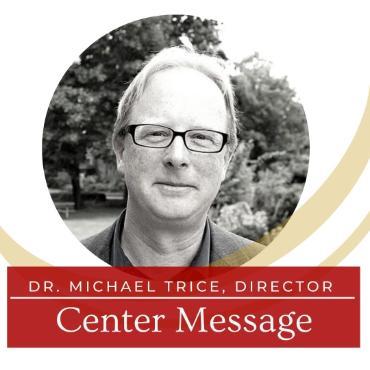No Caption Provided
March 3, 2022
Certificate Programs at the Center and the New STM Student & Alumni Discerning Circle Begins

LISTEN HERE to the Center Message on Soundcloud
I want to begin this report by recognizing the people of Ukraine and respond with prayerful attention and care to the millions – especially children, whose early lives are harmed by the sounds of war – who are in the line of fire from these geopolitical challenges and this infernal invasion. This week, as we acknowledge Ash Wednesday and the start of Lent for Christians around the world, Pope Francis has condemned the “diabolical and perverse logic of weapons,” calling for an end to the war in Eastern Europe.
This is also a week where Hindus around the world celebrate Mahashivratri, or the great night of Shiva this past Tuesday, reminding adherents that just as Shiva became like a mountain in stillness, we too can witness the one, unifying energy in which we are participating, manifested in millions of ways and in every moment. Drawing on these themes and looking at the rise of religious nationalism in India, we interviewed Nikhil Mandalaparthy, who serves as the Advocacy Director of Hindus for Human Rights.
The Center participated in leading a session this past week at the United Nations Environment Program on how universities, including Seattle University, is creating curriculum to address climate devastation and the diminishment of biodiversity, which are just two further reasons why war is so devastating to the land and water around us. In this listening year, the Center is very engaged. With the challenges we are facing, how can we not be facing them alongside you, in your community, and in local communities around the world. I am pleased to share that the Center participated in crafting a final and unprecedented statement on the role of faith, which was read at the United Nations on Wednesday evening of this week. If you are reading this presentation, then click the link to hear the statement read aloud: https://youtu.be/YBLRDlRfZLM . In our contribution, we drew on Pope Francis’ imploration to all of humanity for a transformation of the heart upon which our future depends. It is a reason why we recently interviewed Father Joshtrom, who reports to His Holiness the Pope, on all things ecology. That podcast is part of this newsletter.
Closer to home, I want you to know that, as the Director of the Center, I have convened a new working group called the School of Theology and Ministry Student & Alumni Discernment Circle for the Center for Ecumenical and Interreligious Engagement. I am scheduled to meet with this CEIE Discernment Circle once a month in the months ahead. If you are in the orbit of the School of Theology and Ministry, and are aware of its closing, then I know you will appreciate the deep value that faculty, students, alumni, and friends to STM, place upon the nature of discernment; in a classroom or in the world, a central theme of the STM charism is how the truth arrives in dialogue. Discernment is part of a spiritual, professional, and personal exercise for deeper awareness.
Now, I would like to talk with you about the Center for Ecumenical and Interreligious Engagement and about the university’s decision to endorse our proposal for creating certificate programs through the Center. I need your help with this.
The CEIE Discernment Circle is asked to assist the Center in discerning the course themes, offerings, and certificate programs that the Center will offer in the future. I shared last July that this first year of the Center would be one of listening and discerning; that is year One. Today, STM students and alumni will enable the Center to imagine enduring certificate programs that are informed by the charism of STM. We imagine a future of formational offerings that offer flexibility and versatility for a wide range of students, including university alumni, leaders currently serving in ministerial roles, those seeking formational theological knowledge for use in their community, and those aiming to develop new ministerial capacities such as spiritual direction. I want to invite you now to discern what is essential for this region, and to reach out to me. You will hear me spending more time speaking about certificate programs. University colleagues have worked hard to create this emerging capacity, and year Two of the Center will see our commitment to taking next steps so that these certificates become the curricular spine of the Center’s future.
With the challenges we face in the world, I want you to know of my desire to be in direct communication with you about the future of the Center. But here is the reason – This Center at Seattle University, drawing deeply from the nourishing charism that has shaped thousands at STM, must create the kinds of curricular offerings in the future with educational capacities that are awake to the challenges of our moment, including geopolitical conflicts abroad and the transformational journey of communities of faith as our democracy struggles closer to home. What you will see in this newsletter are the commitments of students through this listening year, in audio, video and word.
Know of my commitment to lead this Center alongside a team of dedicated colleagues, who are sending you their best as well.
Thank you,
Michael Reid Trice, PhD
Spehar-Halligan Professor and Director
Center for Ecumenical and Interreligious Engagement
School of Theology and Ministry
Seattle University


.png)